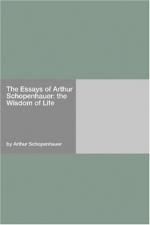|
This section contains 1,658 words (approx. 6 pages at 300 words per page) |

|
SOURCE: "The Cult of the Irrational: Schopenhauer: Nietzsche," in Politics and Opinion in the Nineteenth Century: An Historical Introduction, Oxford University Press, Inc., 1954, pp. 365-81.
Bowle wrote a number of studies of European history and politics, including Western Political Thought (1947) and The Unity of European History (1948). In the following excerpt, Bowle outlines Schopenhauer's political philosophy.
The introspection displayed by Schopenhauer and Nietzsche was already apparent in Herder and Hegel and the Romantic writers of their day. As this romanticism developed, it had often achieved benevolence and sensibility—in hatred of oppression, humanitarian reform, the championship of small nationalities, the emancipation of the slaves. But there was another side to the picture; the obsession with self, the cult of farouche egotism, of utter despair.
It could, of course, prove politically demoralizing. When this romanticism, and its disillusionment, was bound up with philosophy, and when that philosophy was German, sad...
|
This section contains 1,658 words (approx. 6 pages at 300 words per page) |

|


